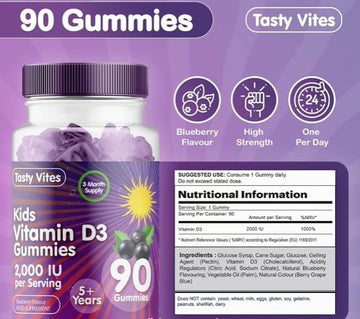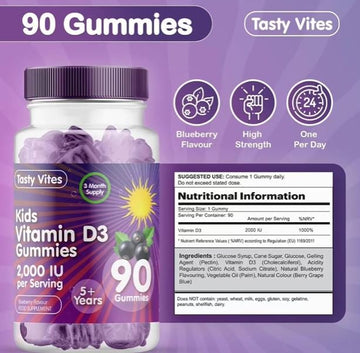What is Vitamin A ? - What are the benefits, sources and recent studies
by Oliver Morgan on Nov 03, 2022

Vitamin A is a fat-soluble nutrient that plays a crucial role in various bodily functions. It is essential for maintaining healthy vision, skin, and mucous membranes. Vitamin A also supports the immune system, reproductive system, and overall growth and development. In this article, we will explore the many benefits of vitamin A, its best food sources, and some positive research studies.
Benefits of Vitamin A:
-
Promotes Healthy Vision: Vitamin A plays a critical role in maintaining healthy eyesight. It helps to prevent night blindness, a condition where individuals have difficulty seeing in low light conditions. Vitamin A also helps to protect the cornea, which is the outermost layer of the eye, and prevent damage to the retina.
-
Boosts Immune System: Vitamin A is essential for maintaining a strong immune system. It supports the production and function of white blood cells, which are responsible for fighting off infections and diseases. Vitamin A also helps to regulate inflammation in the body, reducing the risk of chronic diseases.
-
Supports Reproductive Health: Vitamin A is essential for maintaining reproductive health in both men and women. It is important for the development of sperm and eggs, and it supports the growth and development of the fetus during pregnancy.
-
Promotes Healthy Skin: Vitamin A is necessary for the growth and repair of skin cells. It helps to prevent dry, flaky skin and acne, and it promotes healthy skin tone and texture.
Best Sources of Vitamin A:
There are two types of vitamin A: retinoids and carotenoids. Retinoids are found in animal-based foods, while carotenoids are found in plant-based foods.
-
Animal-Based Sources: The best sources of retinoids include liver, eggs, and dairy products such as cheese and butter. These foods are high in retinol, which is a form of vitamin A that is easily absorbed by the body.
-
Plant-Based Sources: The best sources of carotenoids include colourful fruits and vegetables such as carrots, sweet potatoes, spinach, kale, and cantaloupe. These foods are high in beta-carotene, which is converted into vitamin A in the body.
Research Studies:
-
Reduced Risk of Age-Related Macular Degeneration: Age-related macular degeneration (AMD) is a condition that can cause blindness in older adults. A study published in the American Journal of Clinical Nutrition found that individuals who consumed the most vitamin A had a 40% reduced risk of developing AMD compared to those who consumed the least.
-
Improved Immune Function: A study published in the Journal of Leukocyte Biology found that vitamin A plays a critical role in supporting the immune system. The study showed that vitamin A deficiency can lead to increased susceptibility to infections and diseases.
-
Improved Skin Health: A study published in the Journal of Investigative Dermatology found that retinoids, a form of vitamin A, can help to improve the appearance of wrinkles and fine lines on the skin. The study also showed that retinoids can help to increase collagen production, which is important for maintaining healthy skin.
In conclusion, vitamin A is a crucial nutrient that plays many important roles in the body. It is essential for maintaining healthy vision, skin, and mucous membranes, and it supports the immune system, reproductive system, and overall growth and development. The best food sources of vitamin A include liver, eggs, dairy products, carrots, sweet potatoes, spinach, kale, and cantaloupe. Positive research studies have shown that vitamin A can reduce the risk of age-related macular degeneration, improve immune function, and improve skin health. It is important to include vitamin A-rich foods in your diet to ensure optimal health and wellbeing.
One of our most popular products our Kids Multivitamin Gummies includes the recommended daily dose of vitamin A for kids aged 5-16 years old, click here to buy now.




